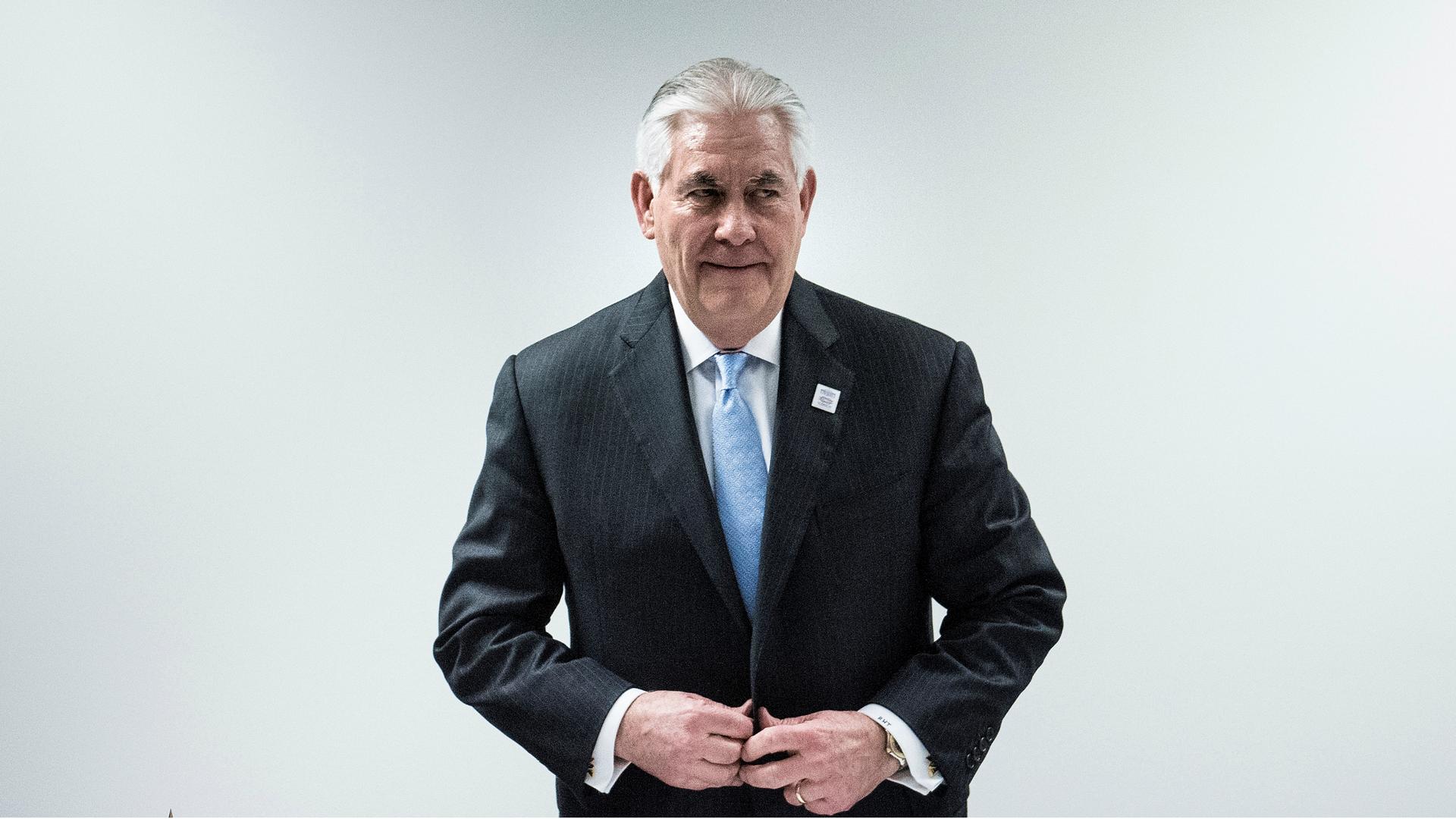#27. @realDonaldTrump What’s the role of the State Department in your administration? #100Days100Qs
US Secretary of State Rex Tillerson takes his seat for a meeting with his Japanese and South Korean counterparts at the World Conference Center in Bonn, Germany, February 16, 2017.
President Trump, what is the role of the State Department in your administration?
A little more than two months ago, Rex Tillerson was running one of the biggest and most powerful companies in the world. Now, he's heading a government agency with an uncertain future under President Donald Trump.
Tillerson resigned as CEO of Exxon Mobil to become Trump's Secretary of State — a position that would ordinarily give him significant influence over US foreign policy and inter-agency policymaking. But it's unclear how much authority Tillerson's State Department will actually have in an administration where power has been concentrated in the White House, among a small team of trusted Trump advisers and family members.
The State Department seems to have been sidelined at times in the first weeks of Trump's presidency.
The Trump administration drafted and issued its controversial immigration and refugee order with little or no input from from State Department officials, according to some reports. There were no State Department officials present for Trump's meeting with Israeli Prime Minister Benjamin Netanyahu. The president has delegated the task of negotiating peace between Israel and Palestine to his son-in-law Jared Kushner, who has no diplomatic experience. When Trump authorized a widely criticized counterterrorism raid in Yemen that killed at least 25 civilians in late January, there was no State Department representative present, according to the Guardian. Even before he was inaugurated, Trump reached out to world leaders without customary briefings from State.
There are also question marks around agency staff. Several top officials have resigned. High-level positions below Tillerson remain vacant. Trump rejected Tillerson's top choice for deputy secretary of state. There's still no State Department spokesperson, nearly a month after Trump's inauguration.
And there's been other turbulence. As many as 1,000 US diplomats signed a memo criticizing the travel ban that circulated on the State Department's official "dissent channel." Trump spokesman Sean Spicer responded by saying State Department employees could "either get with the program or they can go."
On Thursday, there were media reports that significant layoffs are underway.
Tillerson, for his part, has kept a low profile. His first trip outside the US, to a meeting this past week of G-20 foreign ministers in Bonn, Germany, has made few headlines, and he has mostly avoided the press there.
During a much-anticipated meeting between Tillerson and Russian Foreign Minister Sergei Lavrov, US aides ushered journalists out of the room at one point. (“Why did you shush them out?” Lavrov asked.) After the meeting, Tillerson read a statement that took less than a minute to deliver and took no questions from reporters.
It's hard to know what to make of Tillerson's quiet first weeks. Maybe it's just his leadership style. Maybe he's following Trump's lead of keeping the press at arm's length. Maybe he's still figuring out whether and in what ways Trump has empowered him to act on the administration's behalf around the world.
Since we don't know, we're asking you, Mr. President. What's the role of the State Department in your administration? Click here to tweet the question to the president.
Over President Donald Trump's roughly first 100 days, we'll be asking him questions that our audience wants answers to. Join the project by tweeting this question to @realDonaldTrump with the hashtag #100Days100Qs. See more of our questions at pri.org/100questions.
We want to hear your feedback so we can keep improving our website, theworld.org. Please fill out this quick survey and let us know your thoughts (your answers will be anonymous). Thanks for your time!
